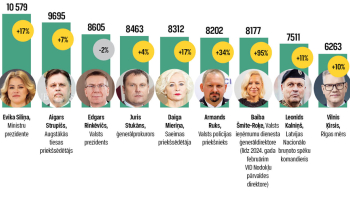
Foto: Baiba Aprāne, LETA
Milton Friedman once quipped that “nothing is as permanent as a temporary government programme”. Let us hope that he is not right when it comes to Latvian state support for firms hit by the Corona crisis.
Many firms are, rightly, being supported by the state due to the off-the-cliff experience they have during lockdown. The argument is that such support should be well-targeted (of course…) and temporary and this for two reasons: 1) To put as little strain of the government budget as possible and 2) to let the market economy rule again as soon as this is possible.
The latter argument is actually very strong in the case of Latvia and I would like to illustrate that with two graphs.
Latvia may not always score that highly in the area of entrepreneurship but in terms of establishing new firms, it does, as can be seen from Figure 1. Only five other countries in EU28 see more new firms being formed relative to the number of existing firms. Lithuania is a clear Number One and several other eastern European countries score highly, too, perhaps as a result of the still-ongoing transformation of these economies. Germany and Sweden, well-established market economies, see rather few new enterprises whereas Greece comes last, possibly as a result of its decade-long recession, following the financial crisis.













